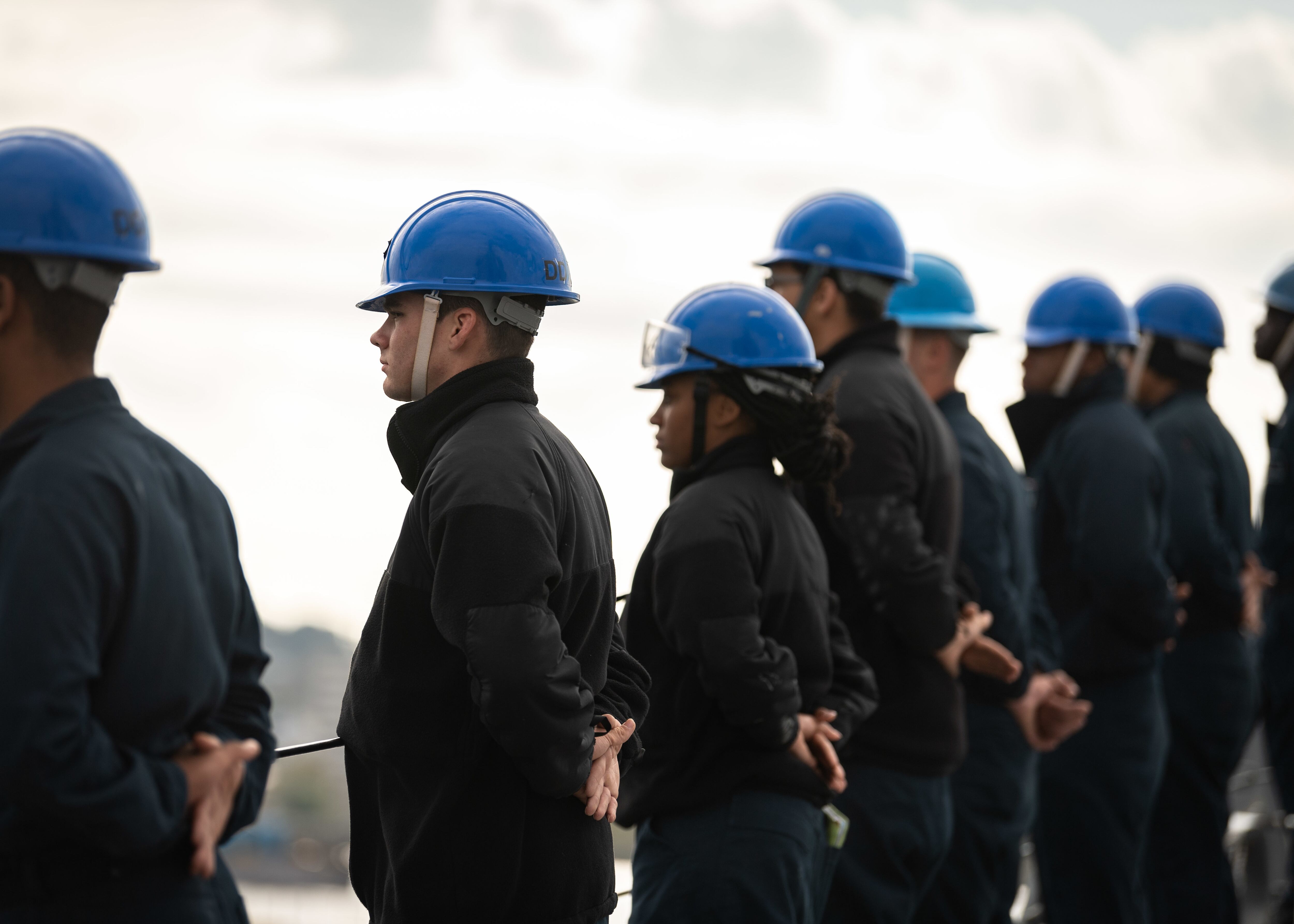Navy Times annually looks to the future in late December, not the past. We want to arm sailors and their families with insight into what we think might be the top trends or news events in the coming year.
We chose 16 stories we think you should watch for in 2020. They were produced by Military Times Deputy Editor Leo Shane III, Senior Navy Times Reporter Courtney Mabeus, Senior Military Times Reporter Geoff Ziezulewicz, Military Times Overseas Operations/COCOM reporter Shawn Snow, Defense News Capitol Hill Reporter Joe Gould and Defense News Naval Warfare Reporter David Larter.
We started Friday with the 13th through 16th top stories for 2020, then hit four more on Saturday and two more on Sunday.
Yesterday, we brought you up to the penultimate story for next year and today we wrap it all up with a discussion about Navy corruption.
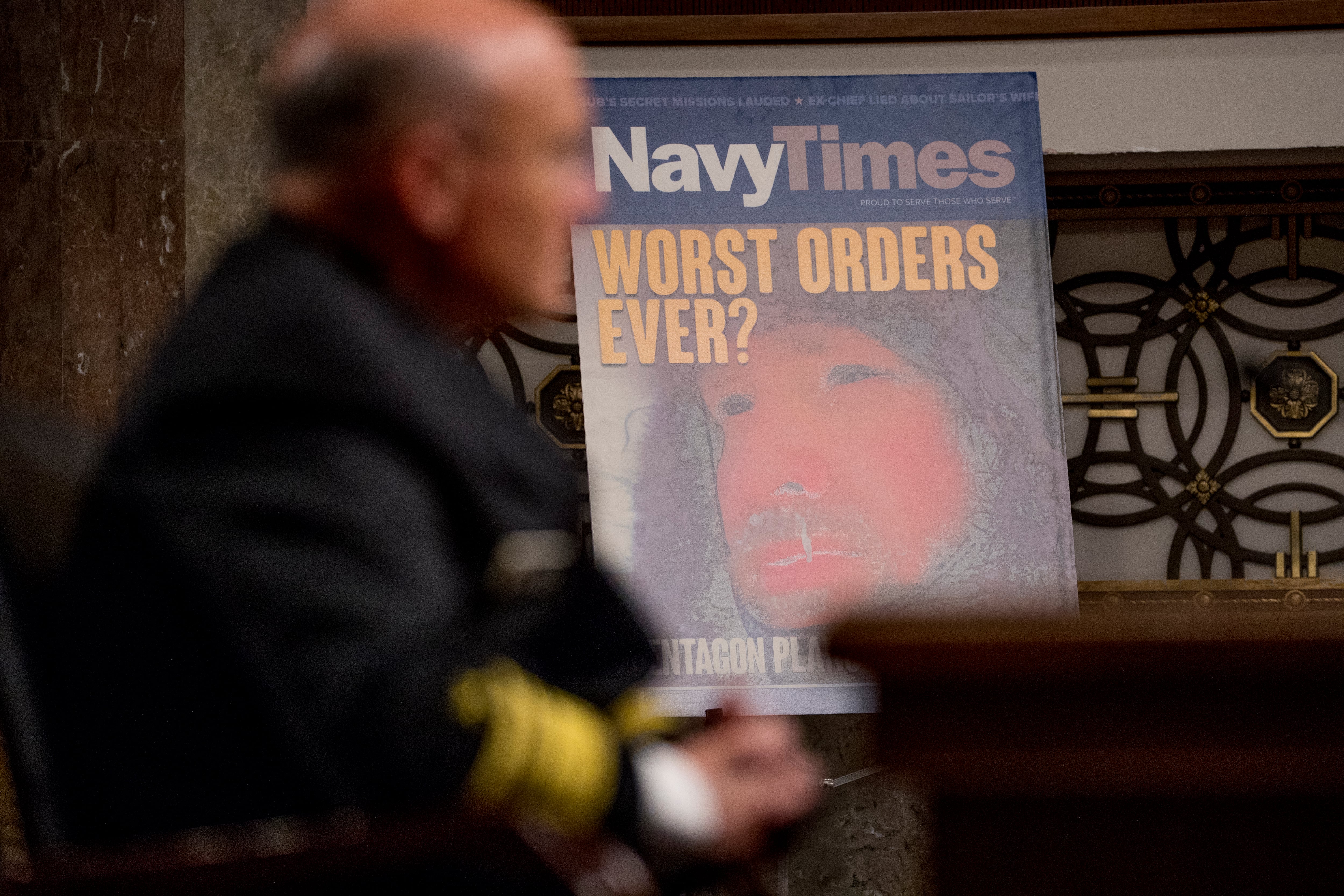
At the end of a year plagued by scandals, and with more bad news looming from ongoing public corruption trials, the new chief of naval operations, Adm. Michael Gilday, gave an order to the fleet he hopes no one will refuse: Rediscover honor, courage and commitment when protecting the Constitution from all enemies.
“That oath is what binds us together. It is the foundation of our profession. It is our north star. It defines us,” he wrote in his Dec. 2 message to all hands.
A great many new and wonderful things will greet the nation’s sea service in 2020 — better boots and uniforms; more pay and meritorious advancements; the best warships, submarines and jets money can buy.
But Gilday’s first major address to the fleet concentrated on character and what officers and their sailors should aspire to be, not what too many of them have been all too often lately.
Which seemed fitting because Gilday got his job because of a scandal and his address came only days after a new scandal claimed his boss, ex-Navy Secretary Richard V. Spencer.
Spencer deep-selected Gilday after his first pick, Adm. Bill Moran, was forced to resign in the wake of an ongoing probe into his ties to a public affairs officer accused of sexually harassing women during a boozy 2016 holiday party at the Pentagon — what became known in the Navy as the “Bad Santa” scandal.
Spencer himself got the boot on Nov. 24 after Defense Secretary Mark T. Esper became concerned about what his office called “lack of candor over conversations with the White House involving the handling of Navy SEAL Eddie Gallagher,” who was being forced to undergo a Trident Review Board widely seen as a merely punitive bureaucratic exercise by embattled Naval Special Warfare commander Rear Adm. Collin Green.
In 2020, Green will continue to be the target of multiple ongoing Inspector General probes into what his accusers say are underhanded efforts to humiliate them in order to save his own career while he abuses the constitutional rights of junior personnel.
One of the complaints was filed by Special Warfare Operator Chief Gallagher, the others by former SEAL Team 7 leaders.
Gallagher’s attorney, Timothy Parlatore, told Navy Times in early December that IG investigators already contacted him to interview his client and other SEALs about Green.
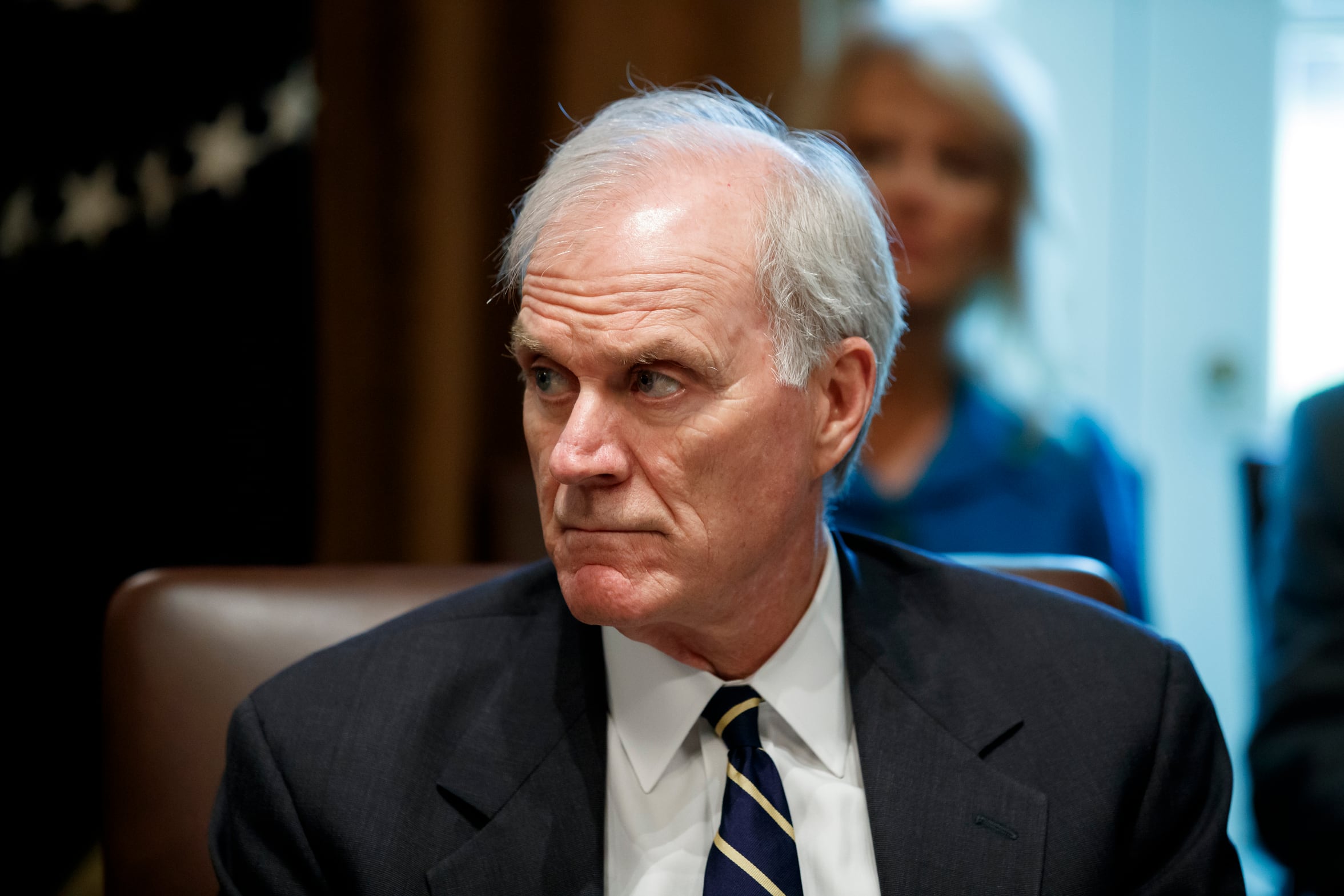
As for Gallagher, he was arrested on Sept. 11, 2018 and stood trial by court-martial for a string of alleged war crimes committed in Iraq a year earlier.
But the case against him collapsed, with a fellow SEAL admitting on the stand he killed a wounded Islamic State prisoner of war so Iraqi security forces wouldn’t rape and torture the detainee to death.
Before the trial even kicked off, however, a military judge sanctioned the prosecution for a bungled warrantless spying program that used email tracking beacons to eavesdrop on defense attorneys and Navy Times.
Prosecutors and Naval Criminal Investigative Service agents also were accused of manipulating witness statements; using immunity grants and a bogus “target letter” in a crude attempt to keep pro-Gallagher witnesses from testifying; illegally leaking documents to the media to taint the military jury pool; and then trying to cover it all up when they got caught.
A probe ordered by Spencer into possible ethical and professional failures by the Judge Advocate General’s Corps was due on his desk two days before he was forced out for what his boss Esper believed were ethical and professional failures as the Secretary of the Navy.
Vice CNO Bob Burke has said that the initial findings have yielded “solid and tangible things that we can change about the JAG community in the Navy” in 2020, such as “how we train, how we acculturate, how we organize” the legal ranks.
Or, as Gilday put it in his December letter to the fleet, all officers and their sailors “must be men and women of integrity.
“We must be honorable. We must be standard-bearers. We must be above reproach. And we must not give anyone cause to question our fundamental values. That is what sets us apart as a fighting force.”
Gilday reserved a special word for commanders, telling them that they must “epitomize integrity and exemplify our course values at all times.” And senior enlisted leaders should “anchor up” and show sailors “what right looks like on the deck-plates, day-in and day-out.”
But since Gilday became CNO, the Navy also stopped releasing public information about executive officers and senior enlisted leaders who are relieved following allegations that they committed criminal or ethical violations or were professionally incompetent.
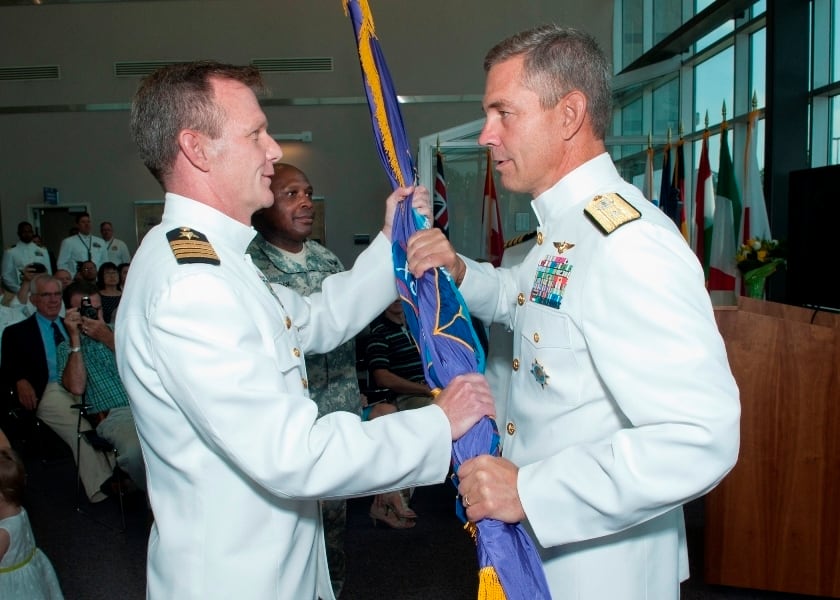
Gilday’s words arrived as criminal trials loom in California Southern District Court for now-retired officers Rear Adm. Bruce F. Loveless, Capt. David “Newly” Newland, Capt. James “JD” Dolan, Capt. David A. “Too Tall” Lausman, Cmdr. Donald “Bubbles” Hornbeck, Cmdr. Stephen Shedd, Cmdr. Mario “Choke” Herrera and Marine Col. Enrico “Rick” de Guzman for alleged public corruption tied to convicted contractor Leonard Glenn Francis.
“Fat Leonard” routinely plied senior commissioned and enlisted Navy leaders in the 7th Fleet area of operations with cash, prostitutes and luxury resort stays to beat out competitors for lucrative ship husbanding and port services contracts.
A separate hearing for retired Capt. David W. Haas is slated for Jan. 16 in San Diego’s federal courthouse. Out on a $50,000 bond, he’s accused of taking at least $145,000 in Fat Leonard bribes.
Arraigned on Sept. 27, retired Chief Petty Officer Brooks Alonzo Parks also stands accused of swapping luxury hotel stays from Fat Leonard in exchange for processing an invoice for the corrupt contractor and leaking information about the flagship Blue Ridge, plus disclosing ship movements for the guided-missile destroyers Paul Hamilton and Stethem.
His next hearing is April 10.
Like the other defendants, Parks and Haas say they’re innocent.
So far, 21 Navy leaders, including flag officers, have been convicted for their roles in Fat Leonard’s $35 million public corruption scheme and the Pentagon has sanctioned administratively another 11 individuals.
“The responsibility for ethical and professional behavior must be taken seriously — and we must own it at every level. We must be protectors and exemplify our values,” Gilday wrote in this December message.
“I’m counting on each of you to set a strong personal example of responsible behavior, both on and off duty.”
RELATED
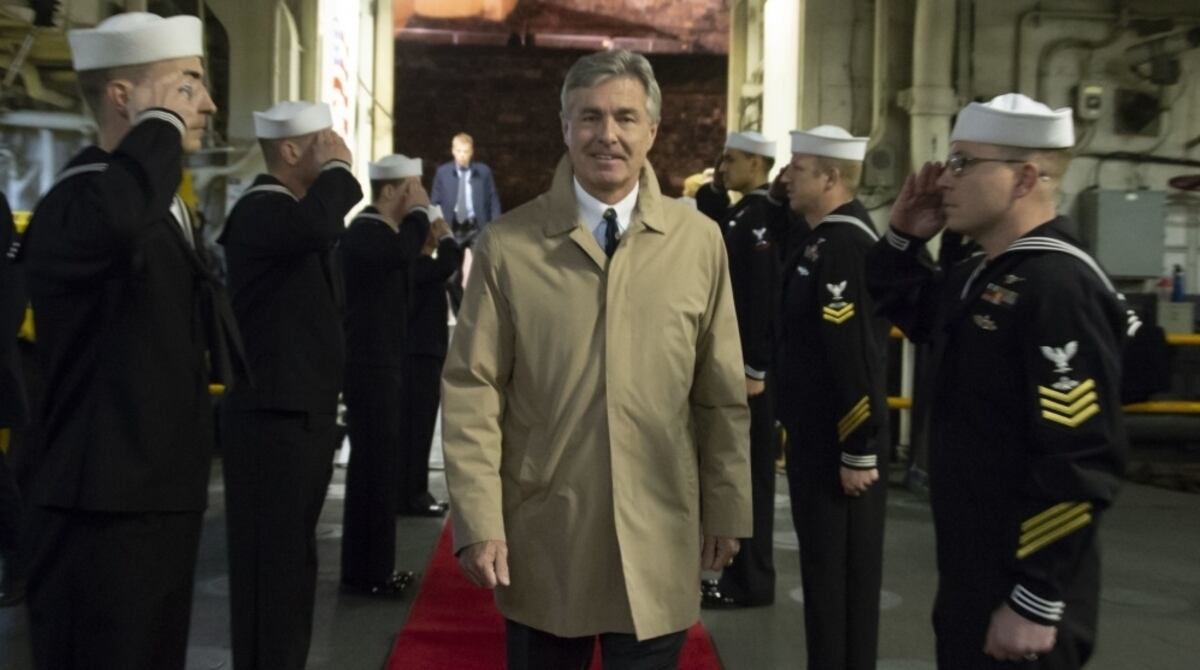
RELATED
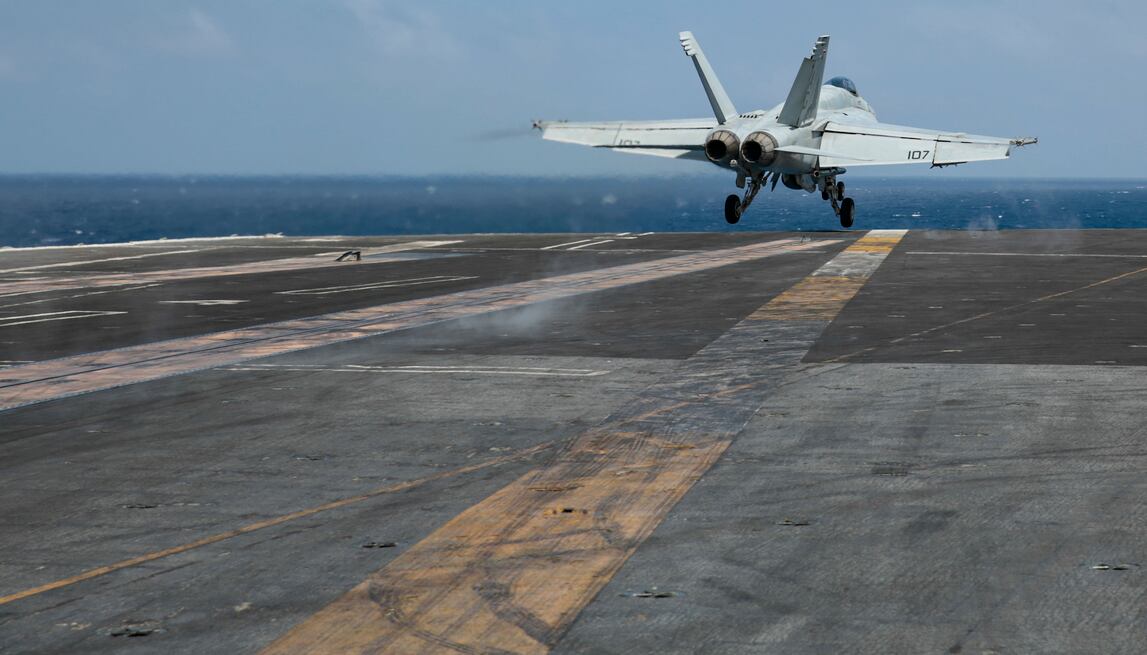
RELATED
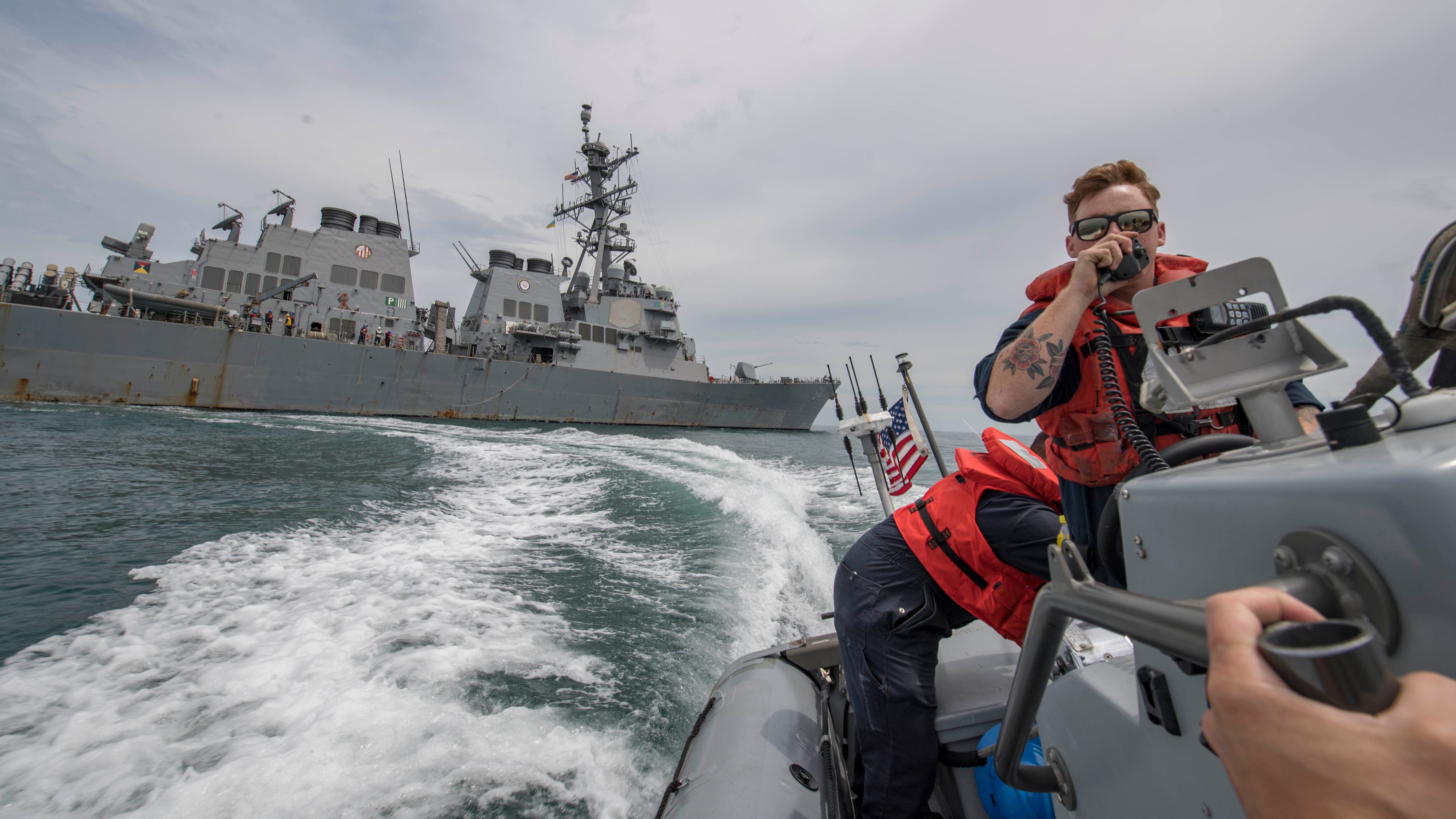
RELATED
